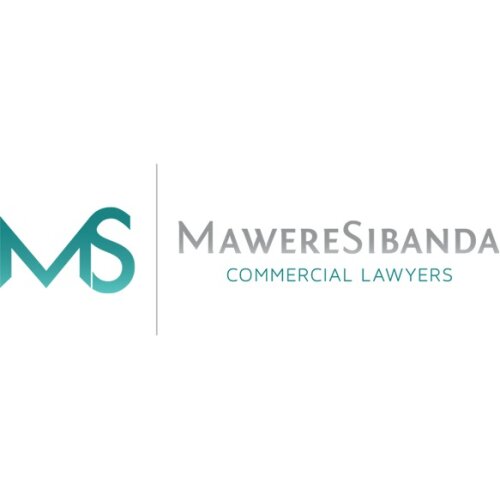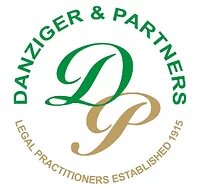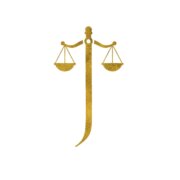Best Corporate Governance Lawyers in Zimbabwe
Share your needs with us, get contacted by law firms.
Free. Takes 2 min.
Or refine your search by selecting a city:
List of the best lawyers in Zimbabwe
About Corporate Governance Law in Zimbabwe
Corporate governance in Zimbabwe refers to the framework of rules, practices, and processes by which companies are directed and controlled. It involves balancing the interests of a company’s stakeholders such as shareholders, management, customers, suppliers, financiers, the government, and the community. The legal system governing corporate governance in Zimbabwe is designed to ensure transparency, accountability, and fairness in corporate operations, supporting ethical business practices and responsible decision-making by company leadership.
Why You May Need a Lawyer
There are several common situations where individuals or businesses may require legal advice in the area of corporate governance in Zimbabwe:
- Ensuring compliance with the Companies and Other Business Entities Act, the Zimbabwe Stock Exchange regulations, and other relevant legal frameworks.
- Drafting and reviewing company constitutions, shareholder agreements, codes of conduct, and board policies.
- Resolving disputes among shareholders or between directors and shareholders.
- Advising on director duties, responsibilities, and liabilities.
- Providing guidance on mergers, acquisitions, and restructuring processes.
- Responding to allegations of mismanagement, fraud, or corruption within a company.
- Navigating regulatory investigations by the Zimbabwe Securities and Exchange Commission or other authorities.
Local Laws Overview
Corporate governance in Zimbabwe is mainly regulated through key statutory and regulatory frameworks, including:
- Companies and Other Business Entities Act (COBE Act) [Chapter 24:31]: This is the principal statute governing company formation, management, and dissolution. It defines the roles, powers, and obligations of directors, officers, and shareholders.
- Zimbabwe Stock Exchange (ZSE) Listing Rules: Publicly listed companies must comply with ZSE rules, which emphasize disclosure, transparency, and good corporate practices.
- Corporate Governance Code (National Code on Corporate Governance Zimbabwe, ZIMCODE): Although not yet fully enacted into law, ZIMCODE provides best practice recommendations for board composition, risk management, remuneration, ethics, and stakeholder engagement.
- Zimbabwe Securities and Exchange Commission Regulations: These cover corporate disclosure, insider trading, investor protection, and other areas affecting listed companies.
- Other sector-specific laws and guidelines: Sectors such as banking, telecommunications, and mining may have additional corporate governance requirements.
Directors and company officers are expected to act honestly, in good faith, and for the best interests of the company - with significant penalties for breaching these duties.
Frequently Asked Questions
What is the main law governing corporate governance in Zimbabwe?
The Companies and Other Business Entities Act [Chapter 24:31] is the main law governing corporate governance in Zimbabwe. It establishes rules for company formation, management, and director responsibilities.
Do all companies in Zimbabwe have to comply with the same corporate governance rules?
While all companies must follow the COBE Act, additional rules may apply to listed companies or companies in regulated sectors, such as those regulated by the Reserve Bank of Zimbabwe, Zimbabwe Stock Exchange, or the Securities and Exchange Commission.
Who is responsible for corporate governance in a company?
The board of directors has primary responsibility for ensuring proper corporate governance within a company, although senior management and individual directors also have specific duties.
What are some common breaches of corporate governance?
Common breaches include failing to disclose conflicts of interest, misuse of company assets, inadequate risk management, not keeping accurate records, and failing to act in the company’s best interests.
What are the penalties for breaching corporate governance laws in Zimbabwe?
Penalties can include fines, disqualification from serving as a director, compensation orders, and in serious cases, criminal charges and imprisonment.
Must company boards in Zimbabwe have independent directors?
While it is best practice recommended by the Zimbabwe National Code on Corporate Governance, it is not yet mandatory for all companies. Publicly listed companies must, however, comply as required by the Zimbabwe Stock Exchange rules.
Are there specific requirements for board meetings in Zimbabwe?
Yes, the COBE Act requires companies to hold frequent board meetings and keep accurate minutes. The company’s articles of association may set additional rules.
How can shareholders enforce their rights in corporate governance matters?
Shareholders may attend meetings, vote on resolutions, request company documents, or take legal action if their rights are infringed or if there is mismanagement.
What role do regulators play in corporate governance?
Regulators such as the Zimbabwe Securities and Exchange Commission oversee disclosure, fair trading, and corporate conduct. They have powers to investigate, sanction, or direct companies to comply with laws.
Where can I find more information or get help regarding corporate governance in Zimbabwe?
You can approach professionals such as corporate lawyers, accountants, or contact the authorities and organizations listed in the resources section below.
Additional Resources
- Zimbabwe Securities and Exchange Commission (SECZ) - Regulates Zimbabwe’s securities and capital markets, including corporate governance standards for listed companies.
- Zimbabwe Stock Exchange (ZSE) - Sets compliance rules for listed companies, including corporate governance frameworks.
- Institute of Directors Zimbabwe (IoDZ) - Promotes good governance, provides training, and offers guidance to company directors.
- Zimbabwe Corporate Governance Code (ZIMCODE) - Details best practice principles for both public and private sector entities.
- Ministry of Justice, Legal and Parliamentary Affairs - Responsible for the administration of company laws in Zimbabwe.
Next Steps
If you require legal assistance regarding corporate governance in Zimbabwe, consider taking these steps:
- Identify your specific issue or area of concern within corporate governance, such as compliance, directorship duties, or dispute resolution.
- Gather relevant documents, such as your company’s constitution, board minutes, contracts, or communications related to your case.
- Consult a qualified lawyer or law firm experienced in corporate and commercial law in Zimbabwe.
- Ask about the lawyer’s experience with similar matters and the potential costs involved.
- If necessary, contact regulatory bodies like the Zimbabwe Securities and Exchange Commission or Institute of Directors Zimbabwe for additional guidance or referrals.
- Stay informed and proactive in understanding your responsibilities and rights under Zimbabwean corporate governance laws.
Each organization and legal situation is unique. Timely legal advice can help you avoid costly mistakes and ensure your company’s governance is legally sound and effective.
Lawzana helps you find the best lawyers and law firms in Zimbabwe through a curated and pre-screened list of qualified legal professionals. Our platform offers rankings and detailed profiles of attorneys and law firms, allowing you to compare based on practice areas, including Corporate Governance, experience, and client feedback.
Each profile includes a description of the firm's areas of practice, client reviews, team members and partners, year of establishment, spoken languages, office locations, contact information, social media presence, and any published articles or resources. Most firms on our platform speak English and are experienced in both local and international legal matters.
Get a quote from top-rated law firms in Zimbabwe — quickly, securely, and without unnecessary hassle.
Disclaimer:
The information provided on this page is for general informational purposes only and does not constitute legal advice. While we strive to ensure the accuracy and relevance of the content, legal information may change over time, and interpretations of the law can vary. You should always consult with a qualified legal professional for advice specific to your situation.
We disclaim all liability for actions taken or not taken based on the content of this page. If you believe any information is incorrect or outdated, please contact us, and we will review and update it where appropriate.
Browse corporate governance law firms by city in Zimbabwe
Refine your search by selecting a city.
















